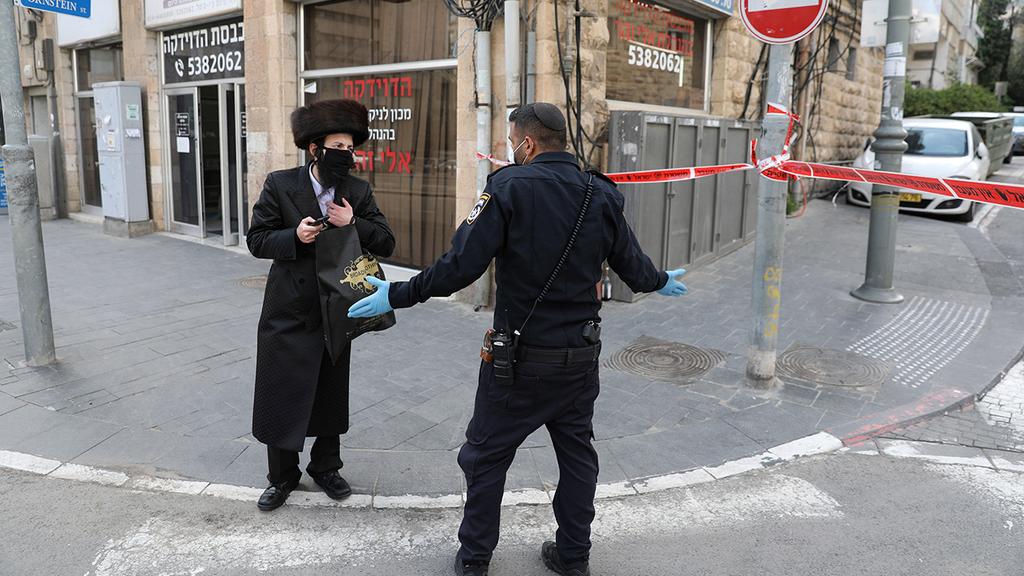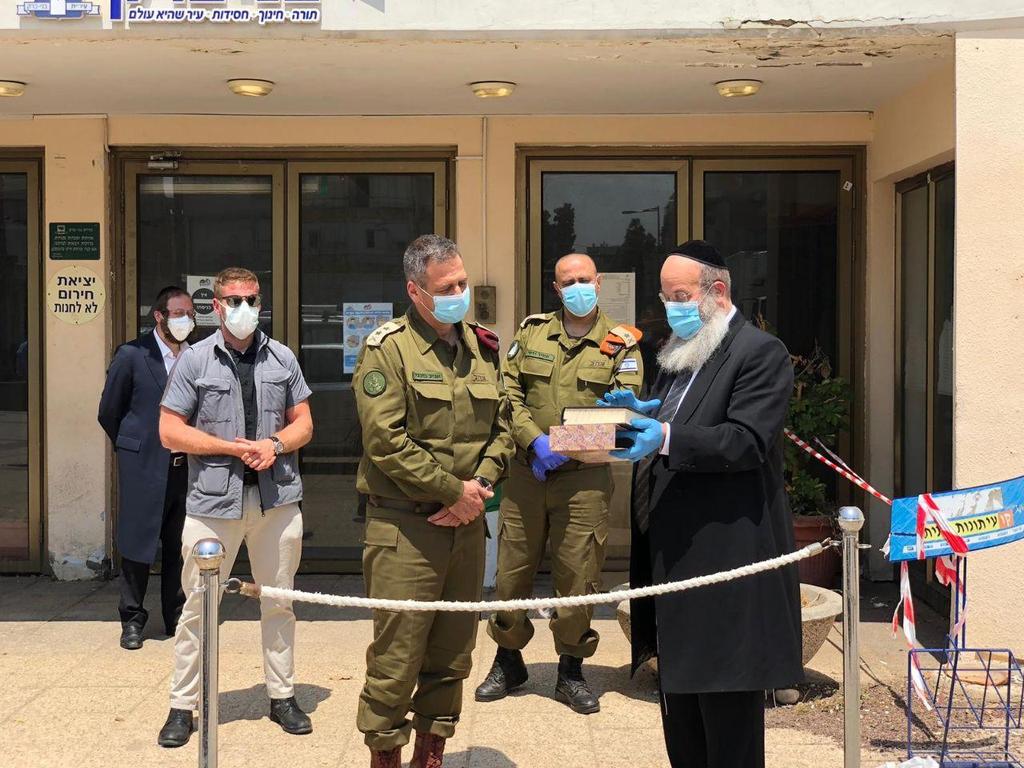Getting your Trinity Audio player ready...
The poverty rate among Israel's non-Haredi community is relatively low, approximately 11% in fact. In the Haredi and Arab communities, however, it is a different story altogether, with more than half of the members of these communities living beneath the breadline.
This piece of data epitomizes the gap within the Israeli community: non-Haredi Jews on one side, Haredi and Arab populations on the other.
3 View gallery


A police officer talks to a resident of the predominantly Haredi city of Bnei Brak during strict closure to halt coronavirus
(Photo: EPA)
The OECD was already aware of this situation in its first review of Israel a decade ago, highlighting the differences in the standard of living, living conditions, education, pay, workforce participation and poverty rates.
All of the above, warned OECD economists back then, threatens the future of Israel and may eventually cause a paralyzing rift within Israeli society.
The warning has been forgotten, and in its stead we have become used to qualifying all data with the disclaimer "when you deduct the ultra-Orthodox and the Arabs.”
3 View gallery


IDF soldiers offering civil aid in the Arab village of Deir al-Asad
(Photo: IDF Spokesperson's Unit)
When you do not factor in the ultra-Orthodox and the Arabs, the poverty rate is low, productivity is high and the quality of life in Israel is excellent. And so 70% of the population has grown accustomed to removing the two "problematic" populations. They are there, we are here.
And this how it went until the coronavirus epidemic arrived in Israel and showed how wrong our sectarian attitude towards these communities was. Their poverty and living conditions affect us all - for it turns out we are actually just one society.
The high fatality rates in certain Haredi neighborhoods and Arab villages endanger not only their residents, it endangers the overall success of the fight against the spread of the epidemic across the entire country.
At present, there is no alternative but to single out these epidemic foci and to isolate them, enforcing emergency regulations upon them until their growth subsides.
If we do not do this, the epidemic will spill over into the general public and endanger the country’s plans to eventually return to normalcy, both economically and individually.
At the same time a lesson must be learned from this epidemic: We have to remove “with the exception of the the ultra-Orthodox and the Arabs” from the national lexicon immediately and stop treating them as the other.
They are, as we learnt, an inseparable part of Israel's society.
3 View gallery


IDF Chief of Staff Aviv Kochavi and Bnei Brak Mayor Avraham Rubinstein in the city during lockdown
The squalid living conditions in Bnei Brak and lack of infrastructure in Arab villages are no longer issues that trouble only their respective populations. They are issues that affects us all.
There is a constant flow between the social, sectarian, religious and geographical groups that make up Israel - every group affects the others.
An active civic policy is therefore needed to reduce the deep differences in quality of life, income, education and access to public services.
If the ultra-Orthodox did not live in such poverty and overcrowding, if Arab society did not suffer such continuous governmental neglect, they would not have been so badly hit by the coronavirus epidemic.
Israel, “with the exception of the the ultra-Orthodox and the Arabs” is nothing more than an economical and social sleight of hand - and now we know is also dangerous to our collective health.

